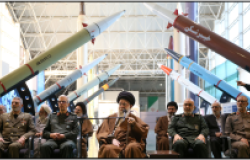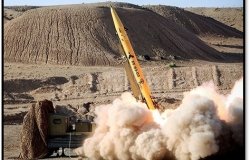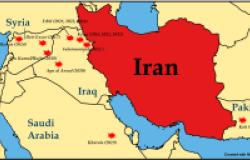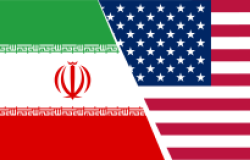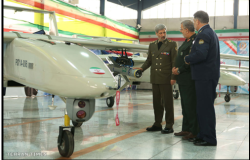Our Summer in Tehran
“Our Summer in Tehran,” which premiered on PBS in 2011, is an intimate and nuanced portrait of the Iranian people. Filmmaker Shapiro took her 6-year-old son with her to Tehran. They spent the summer with three Iranian families from very different backgrounds. Part poetry, part travelogue, part family drama, “Our Summer in Tehran” takes the viewer into the fascinating and yet strikingly familiar home of the typical Iranian family.
Overview
Justine Shapiro, a Jewish-American filmmaker, and her son spent the summer with three Iranian families from very different backgrounds. Her film portrays the diverse yet familiar nature of the typical Iranian family.
On February 18, 2014 the Middle East Program of the Woodrow Wilson Center presented a documentary film screening of “Our Summer in Tehran” with Shapiro, documentary producer and director, and television host. After the screening, Haleh Esfandiari, Director of the Middle East Program at the Wilson Center, moderated a question and answer session with Shapiro.
“Our Summer in Tehran,” which premiered on PBS in 2011, documents Shapiro’s stay in Tehran with her six-year-old son Mateo during the summer of 2007. The film begins with Shapiro’s voiceover saying, “I want to meet Iranian mothers in their homes before our sons meet on the battlefield.” Shapiro and her son spent their time in Tehran with three families: a religious family with ties to the government; a cosmopolitan, secular family; and a mother who is an actress and, like Shapiro, a single parent.
Throughout the summer, Shapiro and her son visit Tehran’s bazaar, travel throughout the city, and get to know the three families. They also take a road trip to Mashhad, the holy city in northeastern Iran that is home to Imam Reza’s shrine. Shapiro describes Iranians as kind and hospitable to strangers. Despite the fact that her movie depicts a beautiful side of Iran, and highlights the positive relationship she formed with the Ministry of Culture, Shapiro experienced challenges when the Ministry of Intelligence asked her to leave Iran abruptly seven weeks into her stay and confiscated her film material at the airport.
During the question and answer session, Shapiro explained that she filmed in Iran in order to show the face of ordinary Iranians and highlight the shared similarities rather than the differences commonly displayed in the media. She emphasized that she made this decision after consulting with Iranians who had left Iran in recent years. Shapiro then discussed the main reasons why she was asked to leave midway through her stay. She noted that at that time, Iran’s government under former President Mahmoud Ahmadinejad was focused on NGO activities because former President George W. Bush’s administration asked Congress to allocate $75 million to promote democracy in Iran. When she was leaving Iran, the Ministry of Intelligence confiscated her films, and she added that she had to make three subsequent trips to Tehran to edit the footage before she was permitted to take her tapes back to the United States and finish her work.
By the Middle East Program
Speaker
Hosted By

Middle East Program
The Wilson Center’s Middle East Program serves as a crucial resource for the policymaking community and beyond, providing analyses and research that helps inform US foreign policymaking, stimulates public debate, and expands knowledge about issues in the wider Middle East and North Africa (MENA) region. Read more
Thank you for your interest in this event. Please send any feedback or questions to our Events staff.






